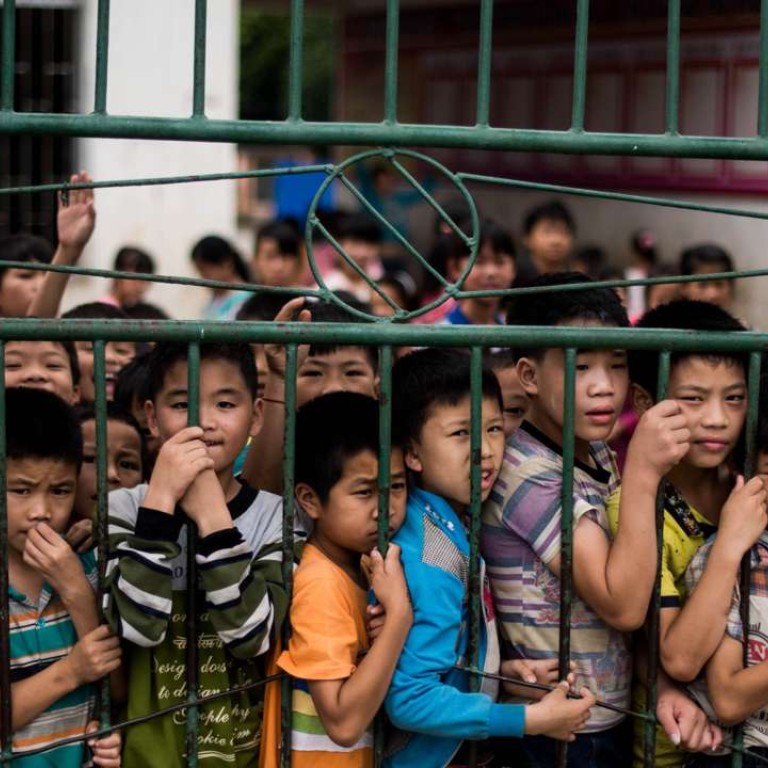
China’s ‘left-behind children’ at higher risk of life of crime, study finds
Researcher calls for urgent action to help children left to fend for themselves in impoverished rural regions while their parents seek work in the cities
Lack of affection from parents, and poor social guidance are among the root causes of criminal acts committed by the mainland’s “left-behind children”, a researcher at Peking University has found.
Zhang Dandan, from the university’s National School of Development, studied 1,200 criminals in prison, finding that about 17 per cent had been such children, living in the care of relatives or left to fend for themselves in impoverished rural areas while their parents worked in cities.
In 2010, the mainland had some 60 million left-behind children living in rural areas, almost triple the total for 2000.
‘Left-behind children’ found stabbed to death in southern China
Zhang told Shanghai-based, state-owned news portal Thepaper.cn that being left alone by parents had an immense psychological impact on children, who became more likely to take risks, or even commit crimes such as robbery and kidnapping.
“A large number of them [left-behind children-turned-criminals] dropped out of school in their early teens, and every one of them turned out to have received little care when they grew up,” Thepaper.cn quoted Zhang as saying. “The left-behind experience had a link with criminal acts due to the lack of parental care.”
The left-behind experience had a link with criminal acts due to the lack of parental care
She said children would tend to become more “adventurous” if their parents did not live with them before they turned 16.
“Due to a lack of guidanceby their parents, the kids failed to build up a proper moral conscience and were more inclined to conduct criminal activities,” Zhang said.
It took Zhang about two years to complete the study examining the link between crime and such children on the mainland.
It has become a sensitive problem for the country as it accelerates its urbanisation drive to buoy economic growth.
“Policies are urgently needed to provide care to this group of children,” Zhang said.
Discrimination against these children had to stopand efforts had to be made to improve their lives, she said.
The issue of left-behind children gained national prominence last year after four children from the same family in Guizhou province committed suicide by drinking pesticide.
Officials sacked over suicide of four abandoned children who drank pesticide
Two other children were abused and murdered by relatives in the same region, while five homeless were found dead in a dumpster on another occasion.
Across the country, media reports have questioned policies that focus on economic development but ignore the welfare of migrant workers and their children.
A main concern is that such children cannot have a decent education as long their basic emotional needs are ignored.
Zhang called for deeper reform of the hukou, or household registration system, to allow more children to live with their parents and attend schools in cities.
Additional reporting by Celine Ge
.

